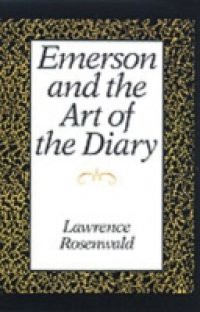This first extended literary description and analysis of Emerson's journals, argues that they, and not his essays, are Emerson's masterpiece, constituting one of the greatest commentaries on nineteenth-century America by one of our most acute formal intelligences. First developing the critical methodology needed to examine the journal form, a genre long neglected by literary scholars, Rosenwald goes on to consider how Emerson the diarist found his form and what form he found. Included are comparisons between the journals and Emerson's lectures and essays, other Transcendentalist journals, the German aphorism-book, and books of quotation by Montaigne and Eckermann. Finally, the author gives an account of how, in his old age, Emerson lost his mastery of the form.

